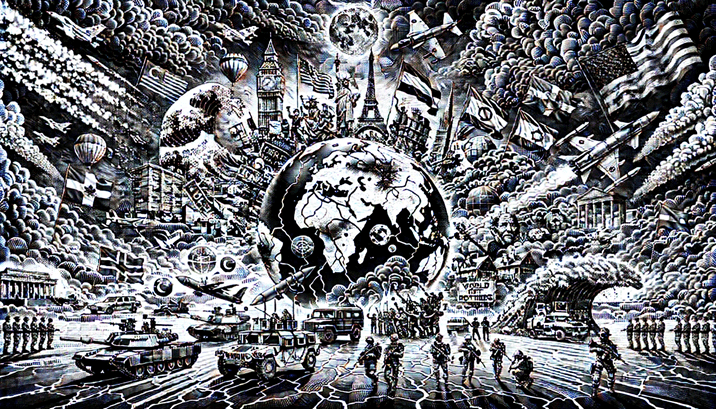This article looks at how sanctions have affected food supplies from ancient times to today. It covers current examples like Iraq in the 1990s, Syria, and the Russia-Ukraine conflict. It also points out the major role the United States—under both Democratic and Republican governments—has played in creating these sanction policies.
Read moreCategory: Western Europe
News and Analyses of events in Western Europe
The Global Race for Rare Earth Elements: Power, Economics, and Strategy
The global rare earth elements landscape is characterized by strategic maneuvers, supply chain realignments, and geopolitical considerations. While efforts by the U.S., EU, and Australia to diversify sources and build domestic capacities are gaining momentum, China’s entrenched position in the market presents ongoing challenges.
Read moreAI in War: How Algorithms are Changing Command, Control, and Chaos
That doesn’t mean we have to reject AI in War or hold on to old-fashioned ways of making decisions. Instead, it means building systems where humans and machines work together—each doing what they’re best at, while making up for each other’s weaknesses.
Read moreFighting Terrorism, Political Games, and Global Power Struggles
Terrorism in the next decade will be closely tied to digital technology and global politics. Countries will use counterterrorism both as a defensive shield and an offensive tool. Expect to see more data-sharing, AI tools, and international forums working together. But also expect more covert actions and propaganda dressed up as counterterrorism. The big challenge for governments will be to separate real security needs from political games. As experts warn, terrorism isn’t going away—but it’s not one single thing, and it’s often shaped by the larger power struggles playing out behind the scenes. The most important task will be keeping counterterrorism rooted in facts and human rights, not just strategy.
Read moreThe Shattering of Peace: The Role of Zelenskyy and His Western Backers in the Ukraine War
The war in Ukraine is a tragic reminder of how easily peace can be shattered. Zelenskyy and his Western backers have turned Ukraine into a battleground for their own agendas, with little regard for the suffering of its people. The world must recognize that peace is not only possible, but necessary. For the sake of Ukraine, for the sake of the world, and for the future of humanity, it is time to choose diplomacy over war. Bangladesh has an important role to play in this effort, and it must act now—before it is too late.
Read moreA Closer Look at How Geography Still Shapes Global Power
Geography still plays a major role in global politics, just like the old theories from Mahan and Mackinder said. Controlling important sea routes, land corridors, and key natural resources is still essential for countries to stay powerful and influential.
Read moreTop 10 Affairs That Could Start World War 3 in 5 Years
The chance of a major global war between 2025 and 2030 is real. The most dangerous flashpoints are the Taiwan Strait and the Israel-Iran conflict. The Russia-NATO situation also remains risky. Other threats—like cyberattacks, climate change, economic troubles, and local wars in Africa—may seem smaller but can grow fast, especially if big countries get involved.
Read moreA Simple Look at Geoeconomics and How Trade is Used as a Weapon
Geoeconomics—using trade and money as tools for global influence—is changing how countries deal with each other. Whether it’s the US-China trade war, the sanctions on Russia, or China’s investments through the BRI, all of these examples show the different ways countries are using economic strategies to get ahead.
Read moreFinancial Shifts in the New Cold War
The world’s financial system is quietly going through major changes. Many people are calling it a “New Financial Cold War.” What’s happening is that countries like China, Russia, and others are trying to rely less on the U.S. dollar. They want more control over their own money systems, especially as tensions with the U.S. rise and sanctions become more common.
Read moreHow the Strategic Revival of Russia, China, and Iran is Redrawing Eurasia
Russia, China, and Iran have been stepping up their military teamwork in recent years. They now hold regular joint naval drills, like “Security Bond-2023” and “Marine Security Belt 2024” in the Gulf of Oman. These exercises include warships and aircraft from all three countries, covering huge areas of sea to practice fighting terrorism and protecting trade routes. Other countries, like Pakistan and India, even sent observers in 2024.
Read more









